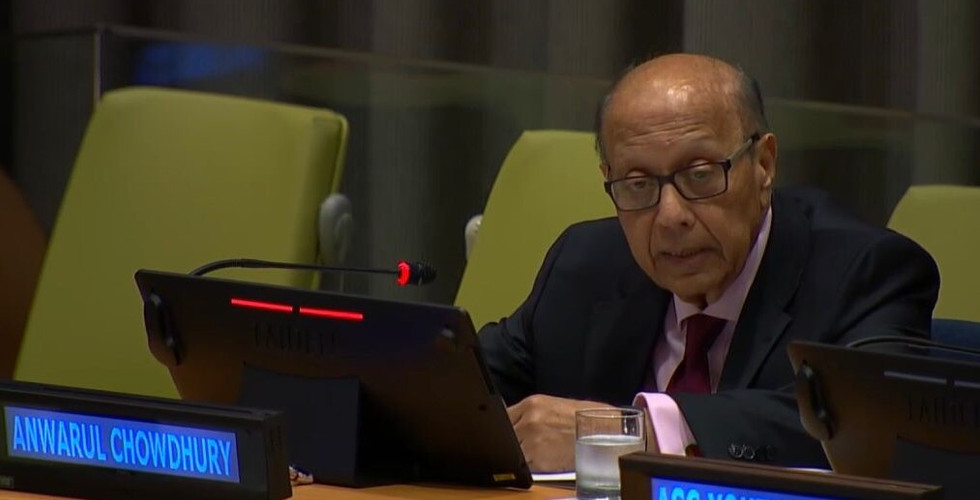UN Forum: Empowering Youth for a Culture of Peace
- Sep 2, 2025
- 3 min read
Updated: Sep 13, 2025
New York, United States – On September 2, 2025, the UN High-Level Forum on the Program of Action on the Culture of Peace 2025 took place at the UN Headquarters Trusteeship Council Chamber on the theme: “Empowering Youth on a Culture of Peace.” Convened by H.E Mr. Philemon Yang, president of the 79th Session of the UN General Assembly, the forum consisted of an opening segment and a plenary segment. The forum emphasized harmony, friendship, and solidarity, with youth at the center of peace and development worldwide.
The Committee on Spirituality, Values and Global Concerns-NY (CSVGC-NY) was invited to participate in these proceedings, with a representative on the executive committee. UPF is a member of CSVGC-NY.
In his introductory remarks, H.E. Yang emphasized the timeliness and significance of this forum as a call to action towards empowering youth, as one of the most effective ways to ensure that the culture of peace takes root in every sector of society and endures across generations. When young people learn the values of tolerance, values and conflict resolution early in life, they carry those values into adulthood, playing a transformative role in creating peaceful societies and showing the way to a brighter future, he said. He stressed the urgency of taking meaningful steps to equip young people with the knowledge, the resources, and opportunities they need to participate fully in peacebuilding and conflict prevention.
Dr. Felipe Paullier, assistant secretary-general for youth affairs at the UN, acknowledged the openings for youth engagement in policy making, but added that their contributions are not reflected in budgets and their programs are underfunded. He said that young people require trust, investment funds, and partnership. As best practices, he pointed to the Peacebuilding Fund, the UN Youth Peace Agenda, and UN Youth Compass. Dr. Paullier concluded that peace will endure when youth are treated as equal partners.
Ms. Elizabeth Spehar, assistant secretary-general for peacebuilding support at the UN, pointed out that violence and conflict are at an all-time high and many young people feel alienated and shut out of peace policy and politics. To resolve these issues, the UN Department of Political and Peacebuilding Affairs (DPPA) is working with the UN Youth Office in three areas: 1) integrating young people into peace processes and programs; 2) working to address and help youth in the peace process; 3) promoting youth’s vital role in sustaining peace and conflict prevention.
Ms. Shantel Marekera Chakara, founder of the Little Dreamer’s Foundation, said peace as a global currency has been dangerously devalued. She said if we are serious about creating a culture of sustainable peace, then we must be serious about youth. That means moving from symbolic gestures to substantive changes. She offered three suggestions: 1) institutionalize youth participation in governance and peace processes from the national to international spaces; 2) provide political, financial, technical and logistical support for youth organizations and creation of livelihoods; 2) reform education with tailored age-appropriate methods that teach employable skills and civic values.
Important remarks were delivered by Amb. Anwarul Chowdhury, founder of the Global Movement for the Culture of Peace, and former under-secretary and high representative of the United Nations. Amb. Chowdhury also plays a crucial role as special advisor to CSVGC-NY. He pointed out that both governments and civil society have essential roles in promoting and strengthening a culture of peace.
Amb. Chowdhury emphasized four areas: 1) transformative education to inform students about the world and its diversity, promote global citizenship, and teach non-aggressive means of relating to one another and to other world citizens; 2) inclusion of women, since without women, neither peace nor development can be attained; 3) empowerment of youth and children to embrace the culture of peace that can shape their lives and the future of the world; 4) centrality of UN engagement, with the program of action internalized throughout the UN system.
The plenary segment comprised reports from UN member nations on their substantial support for the culture of peace and youth empowerment. Presenters included representatives of Bangladesh, Turkey, Venezuela. Kyrgyzstan, China, Morocco, Angola, Cuba, India, Timor-Leste, Burkina Faso, Costa Rica, Guatemala, Nigeria, Algeria, Austria, Azerbaijan, Russian Federation, Portugal, Tunisia, Brazil, Nicaragua, Myanmar, Cambodia, Oman, Rwanda, Armenia, South Africa, Suriname, Kazakhstan, Philippines, Bahrain, Saudi Arabia, Burundi, Thailand, Iran, Syria, Iraq, Pakistan and Jordan.









